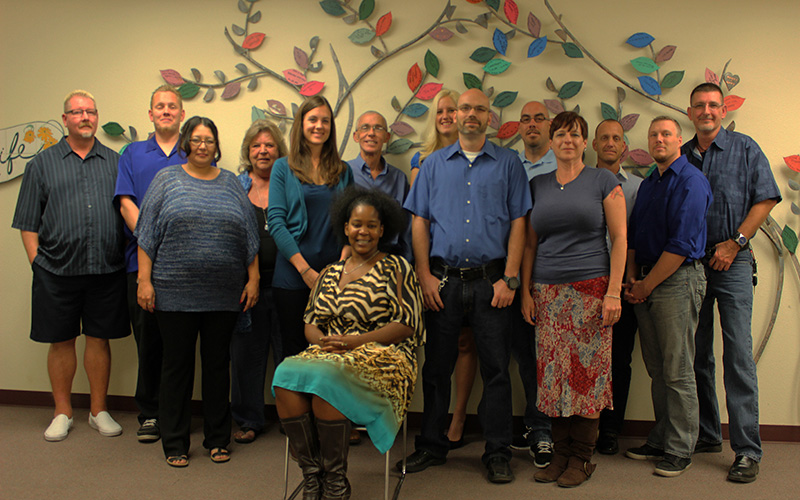
The staff of Phoenix Shanti Group at their office. The nonprofit launched in 1987, during the height of the AIDS epidemic, but it will close its doors next year due in part to lack of funds. (Photo courtesy of Phoenix Shanti Group)

Phoenix Shanti Group, which supports programs for AIDS/HIV patients, will close next year. A thrift store that provides job training is among the services that will be affected. (Photo courtesy of Phoenix Shanti Group)
PHOENIX – The Phoenix Shanti Group, a nonprofit that has been serving HIV+ patients with a history of drug abuse or homelessness since 1987, will close next year.
Lack of funding played a major factor in the closure, even with new cases of HIV, the virus That causes AIDS, on the rise in Maricopa County.
The center was created at the height of the AIDS epidemic, when the illness was relatively new and misconceptions were common. Cases of a mysterious illness that primarily affected gay men started getting attention in 1981, and by the end of the decade, nearly 90,000 people had died from the illness in the U.S. alone.
The center “was a hospice model at the time, supporting what was essentially a fatal disease,” said Keith Thompson, chief executive of the Shanti Group. “Another big part of the Shanti model at the time was caregiver training.”
That training included the medical aspects of caring for those with AIDS but focused on how to handle their deaths.
As life-saving medications became available over the years, the Shanti Group shifted to meet the needs of patients who still required help but were more likely to survive the disease.
“The only thing we ask of our patients is to be clean,” Thompson said, referring to drug use. “We’ll take care of everything else.”
When the center closes in 2020, more than its therapy and caregiver training programs will be affected.

A mural at the Phoenix Shanti Group. When the center closes in 2020, more than its therapy and caregiver training programs will be affected.
Shanti Group also provides varying levels of housing and operates a thrift store that provides job training. (Photo courtesy of Phoenix Shanti Group)
Shanti Group also provides varying levels of housing, ranging from short-term transitional housing to permanent housing for families. Thompson has been working with families and other facilities to ensure that no one is left on the street after the center closes.
Shanti also has a thrift store provides job training for its residents and an income stream for the nonprofit.
It’s not uncommon for those who were patients to become employees once they graduate from Shanti’s programs.
“It’s just this big bubble of love,” said Sherrie Benecke, behavioral health paraprofessional at Shanti Group.
Beneke came to the center after finding out that she was HIV+ after years of drug use.
“I was in denial at first,” Beneke said. “I knew for nine years, but I was just in denial.”
Beneke added that she feels an added layer of stigma because she is a heterosexual woman with the illness.
After leaving jail, she found herself at Shanti Group, desperate for help. Once she was clean, the center hired her.
Beneke hopes to stay in the field even after the center closes. The group is preparing her with the tools to transition to another behavioral health center.
Thompson hopes people will continue to support groups that help the AIDS community in Phoenix, including the Southwest Center for HIV/AIDS.
“The AIDS epidemic isn’t over. If you supported Shanti Group, continue to support other AIDS organizations,” Thompson said.

